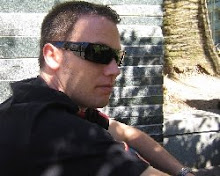I'm sure there are other tips I'm missing, but if you start with these your odds are already better than the competition. A lot of people spend a bunch of time on formating and layout but in today's database-driven world it's likely to be scanned into a text-only format anyway. So just make sure it looks ok, isn't too cluttered, and doesn't use more than two different fonts.
Saturday, March 1, 2008
Some general resume tips
My brother-in-law is about to graduate from UCLA and is embarking on his first serious job search so Danielle and I have been trying to give him some helpful resume advice. Personally, I love job hunting and interviewing. While I normally wouldn't consider this Poor Man's MBA type of material, I think it's a useful reminder. I'll try to bullet point these and keep them short. This is a compilation of advice from myself and others and is in no particular order. I've got other general job hunting tips so email me if you're interested but here I'll stick to the resume stuff.
Use a "Master" resume - Create one resume that has way more information that you need on it. Include all your accomplishments no matter how small. It's ok if it's longer than one-page because you're never actually going to submit it. Use this resume to pull information from when crafting custom, one-off resumes for each job you're applying for.
Cater your resume to the job - You should be using some of the same words and terminology on your resume that are listed in the job description. Sometimes this is as simple as rephrasing things you've already got. Don't assume that a recruiter will connect the dots and see that meeting your sales results led to hitting revenue targets. If the job description mentioned revenue targets, explicitly spell out how you reached yours in a previous job.
Write a good cover letter - The "Best of Craigslist" has some good advice on not screwing this part up. And remember to write a cover letter for every job.
Emphasize accomplishments, not duties - Instead of just listing what your responsibilities at previous jobs were, highlight your accomplishments in those roles. Monster.com posted a good article on Avoiding the Top 10 Resume Mistakes.
Use action verbs - It sounds pretty simple and using action phrases can be your ticket to a job interview.
Make sure it's only 1 page - Unless you are a published researcher or a member of congress, your resume should never exceed a page. Recruiters are busy people and won't read more than that. Remember, your resume is your ticket to an interview. It's like a little sales brochure about yourself. Use it to get them interested so that they follow up with you for more information.
Use numbers - Include numbers in your resume wherever possible. This gives it quantitative information and emphasizes accomplishments instead of duties. For example, saying "Improved productivity by 2 FTEs" (full time employees) is better than "Increased efficiency of my team."
Subscribe to:
Post Comments (Atom)

2 comments:
I disagree with the 1 page limitation to the resume on a case-by-case basis. I'd keep it under 1 page for someone leaving school, or with generalized experience relating broadly to a particular job - but I don't think a pointed resume at a specific role, especially someone with a lot of relevant experience should stick to 1 page as a rule. I've seen some executive resumes as a great example of this - they have a lot to say regarding their experience, their accomplishments, and it very directly all relates to the job at hand. For this type of position, however, the folks are looking at far fewer resumes - and the jobs aren't always posted.
I agree that it should be kept to one page unless you really have a TON of experience/publications. Typically those longer ones you see for executives are not resumes, they are CVs ("CURRICULUM VITAE") which are always longer and more frequently used by other countries and for executive positions.
Post a Comment